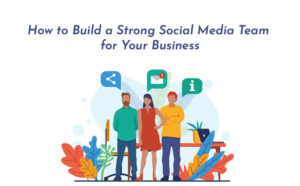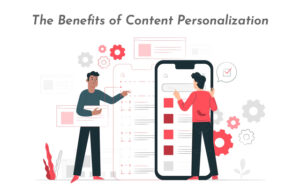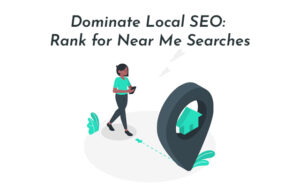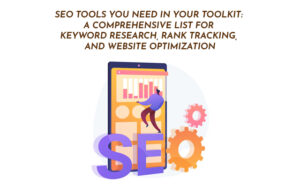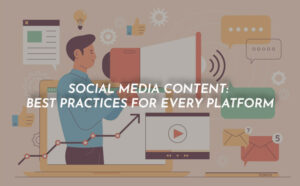Introduction:
In the ever-evolving landscape of marketing, two powerful forces are reshaping the way brands connect with their audience: Artificial Intelligence (AI) and Personalization. The synergy between these two elements is not just a trend but a paradigm shift that promises a future where marketing messages resonate on a deeply personal level. This article explores the dynamic relationship between AI and Personalization in marketing, delving into the possibilities, challenges, and the transformative impact on customer experiences.
Understanding the Power of Personalization:
Personalization in marketing is not a novel concept, but its execution has undergone a revolutionary transformation with the advent of AI. Traditional personalization involved segmenting audiences based on broad characteristics such as age, location, or purchase history. While effective to some extent, it lacked the finesse and adaptability required to cater to the diverse and dynamic preferences of individual consumers.
AI, with its ability to process vast amounts of data at incredible speeds, has become the catalyst for a more nuanced and individualized approach to personalization. By analyzing intricate patterns, behaviors, and preferences, AI empowers marketers to tailor messages, recommendations, and experiences on a granular level, creating a more profound and meaningful connection with consumers.
You would like to read: How Can You Use Marketing Automation To Scale A Business?
The Role of AI in Personalization:
- Data Processing and Analysis:
- AI excels in processing and analyzing colossal datasets, providing marketers with valuable insights into consumer behaviors, preferences, and trends. Machine learning algorithms can identify patterns and correlations that may be imperceptible to human analysis.
- Predictive Analytics:
- AI enables predictive analytics, allowing marketers to anticipate consumer preferences and behaviors. By analyzing historical data, AI algorithms can forecast future trends, helping brands stay one step ahead in delivering relevant and timely content.
- Real-Time Decision-Making:
- With AI, personalization doesn’t have to be static. Real-time decision-making capabilities enable dynamic adjustments to marketing messages based on user interactions, ensuring that the content remains pertinent and engaging throughout the customer journey.
- Chatbots and Virtual Assistants:
- AI-powered chatbots and virtual assistants offer personalized interactions by understanding user queries and providing tailored responses. This not only enhances customer support but also contributes to a seamless and personalized experience.
The Marriage of AI and Personalization:
- Hyper-Personalization:
- The integration of AI allows for hyper-personalization, where marketing messages are crafted with unparalleled precision. From personalized product recommendations to individually tailored promotions, AI-driven personalization transforms the customer experience from one-size-fits-all to uniquely tailored.
- Enhanced Customer Journey:
- AI facilitates a more seamless and intuitive customer journey. By analyzing user behavior across various touchpoints, AI can anticipate the next steps in the customer’s journey, ensuring a cohesive and personalized experience from awareness to conversion.
- Content Customization:
- AI enables the customization of content based on individual preferences, browsing history, and interactions. Whether it’s adjusting website content, email campaigns, or social media posts, AI ensures that each piece of content resonates with the specific interests and needs of the recipient.
- Email Marketing Reinvented:
- AI-driven personalization is transforming email marketing into a highly targeted and effective tool. From personalized subject lines to content recommendations, AI analyzes user behavior to deliver emails that stand out in crowded inboxes and drive engagement.
You would like to read: Deciphering The Multiverse: How Google’s Gemini AI Is Reshaping Our Understanding Of Intelligence
Challenges and Considerations:
While the marriage of AI and personalization holds immense potential, it comes with its set of challenges and ethical considerations.
- Privacy Concerns:
- As personalization relies on extensive data collection, there is a growing concern about privacy. Marketers must navigate the delicate balance between delivering personalized experiences and respecting user privacy, ensuring compliance with regulations like GDPR.
- Algorithmic Bias:
- AI algorithms are only as unbiased as the data they are trained on. Marketers need to be vigilant about algorithmic bias, which can perpetuate and amplify existing prejudices. Regular audits and ethical AI practices are crucial to mitigate this risk.
- Overreliance on Data:
- While data is a powerful tool, there’s a risk of overreliance. Marketers should strike a balance between data-driven insights and the human touch, recognizing that not all aspects of the customer experience can be quantified.
- User Consent and Transparency:
- Building trust is paramount. Marketers should be transparent about their data collection practices, obtain user consent, and empower users with control over the level of personalization they receive.
The Future Outlook:
As AI and personalization continue to evolve, the future promises a marketing landscape where every interaction is a bespoke experience. The integration of AI technologies, such as natural language processing, computer vision, and sentiment analysis, will further refine personalization capabilities.
- Voice-Activated Personalization:
- Voice-activated AI, like virtual assistants, will play a significant role in personalized interactions. Brands will need to optimize their content for voice search and understand the nuances of conversational interfaces.
- Augmented Reality (AR) Personalization:
- AR technologies will enable immersive and personalized experiences. Customers could virtually try products before purchase, and marketing messages may be tailored to individual preferences within augmented environments.
- Emotional Intelligence in AI:
- Advancements in AI will focus on enhancing emotional intelligence, allowing systems to understand and respond to human emotions. Personalization will not only be based on preferences but also on the emotional context of user interactions.
- AI-Driven Creativity:
- AI will become a creative partner, generating personalized content and marketing collateral. From dynamically generated ad creatives to personalized video content, AI-driven creativity will streamline the content creation process.
Conclusion:
The integration of AI and personalization represents a transformative force in the marketing landscape. By harnessing the power of AI to understand, predict, and respond to individual preferences, marketers can create a new era of engagement that goes beyond traditional segmentation. As technology continues to advance, the key will be to strike a delicate balance between personalization and user privacy, ensuring that the future of marketing is not only intelligent but also ethical and deeply customer-centric. The symbiosis of AI and personalization is not just a glimpse into the future; it is the evolution of marketing into a realm where every interaction feels tailor-made for each unique individual.


